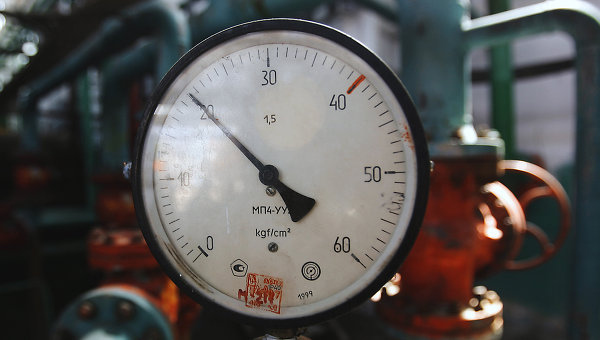Georgia regards Azerbaijan its strategic ally in gas supplies

By Aynur Karimova
Georgia, which enjoys significant transit potential for delivering hydrocarbon resources of the Caspian basin, is ambitious to transit Iranian blue fuel to Europe.
Georgian Energy Minister Kakha Kaladze's statement that his country can import Iranian gas “either through Azerbaijan or through Armenia," has given birth to concerns about reliability of energy partnership with energy-rich Azerbaijan, Georgia's main gas supplier.
Mariam Valishvili, Georgian Deputy Energy Minister, told local media that the country has not yet made a decision on the transportation of gas from Iran, because Azerbaijan is a strategic ally of the country in terms of gas supplies.
“If it is impossible to completely have the Azerbaijani resource in terms of meeting price and volumes, of course, Iran is considered as an additional opportunity,” she said. “Iranian gas currently costs more than that of Azerbaijan and Russia.”
Price of natural gas depends on the natural gas price, which dynamically changes. Therefore, Georgia will consider commercial details "after Iranian natural gas becomes an international product.”
Daily gas consumption in Georgia exceeds 11 million cubic meters per day and about 2.5 billion cubic meters per year. Azerbaijan is the main supplier of gas to Georgia with a specific weight of 74.9 percent of total imports in this category.
Last year, the country imported 1.51 million tons of oil equivalent of natural gas in the amount of $314.3 million from Azerbaijan in 2015.
On an annualized basis, the volumes of Georgian natural gas imports from Azerbaijan in terms of value increased by 9.4 percent, in quantitative terms by 127,170 tons of oil equivalent, or by 9.2 percent.
Currently, Azerbaijan supplies gas to Georgia via the Hajigabul-Gardabani pipeline with a gas pumping capacity of 6.5 million cubic meters per day. The second way carrying gas to Georgian consumers is the Baku-Tbilisi-Erzurum (South Caucasus) Pipeline, through which the gas from the first stage of the Shah Deniz field is supplied to Georgia and a large proportion goes through its territory to Turkey.
Annual growth of the Georgian market is up to 10 percent or maximum 250 million cubic meters per year. With such a growth rate, gas consumption in the country will reach five billion cubic meters in the next 10 years.
No doubt that this amount is not beyond the power of Azerbaijan, which enjoys huge gas resources.
Lasha Dzebisashvili, professor at the University of Georgia,
told Trend that there is no alternative to the Azerbaijani gas for
Georgia, considering its affordable price and the fact that
Azerbaijan is the country’s strategic partner.
“Gas purchase from Azerbaijan is more favorable [than purchase from
other suppliers] for Georgia,” he said. “If SOCAR is able to supply
additional gas to Georgia, then I will not see an alternative to
the Azerbaijani gas. However, if Azerbaijan refuses to increase the
supply to meet Georgia’s growing needs in gas in the winter season,
the current deficit will be reimbursed by supplies from other
sources, such as Iran."
The expert believes that the infrastructure for the supply of
Iranian gas both through Azerbaijan and Armenia exists. But the
admissibility of these gas prices remains an important
question.
“Considering the prices for the Iranian gas, its transportation and
transit, this idea becomes highly questionable,” he explained.
Currently, SOCAR has several plans to increase gas export to
Georgia. In this regard, the company will fully upgrade the
Hajigabul-Gardabani pipeline to increase its capacity.
Also, works on the expansion of the South Caucasus Pipeline as part of the Shah Deniz-2 project have already commenced. These works include the construction of a new pipeline in the territory of Azerbaijan and two new gas compressor stations in Georgia. Expansion of the South Caucasus Pipeline will triple its capacity to more than 20 billion cubic meters a year. That will allow allocating more gas to Georgia.
--
Aynur Karimova is AzerNews’ staff journalist, follow her on Twitter: @Aynur_Karimova
Follow us on Twitter @AzerNewsAz
